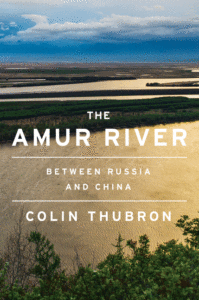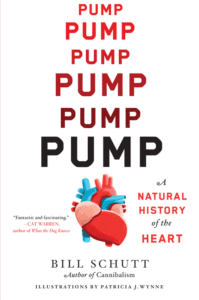
Mary Roach’s Fuzz, Suzanne O’Sullivan’s The Sleeping Beauties, Colin Thubron’s The Amur River, Bill Schutt’s Pump, and Giulio Boccaletti’s Water all feature among the best reviewed science, technology, and nature books of the month.
1. Fuzz: When Nature Breaks the Law by Mary Roach
(W. W. Norton)
8 Rave • 2 Positive
Read an interview with Mary Roach here
“Mary Roach is the Deborah Vance of science writing … you’re hooked, and for good reason. Roach has a sure sense of drama, and she crafts sentences that crackle and pop … In some alternative universe, Mary Roach and Deborah Vance are show business’ hottest comic duo, headlining nightly at the Bellagio or the MGM Grand, packing them in with laugh-till-you-cry tales of bad bears and bad breakups, rogue leopards and rogue lovers. Until that day arrives, you can savor this excellent book.”
–Peter Fish (The San Francisco Chronicle)
2. The Sleeping Beauties: And Other Stories of Mystery Illness by Suzanne O’Sullivan
(Pantheon)
6 Rave • 4 Positive
Read an excerpt from The Sleeping Beauties here
“… at once poignant, surprising and sometimes horrifying … Unraveling the mystery behind such strange occurrences requires more than neurological expertise—it needs careful handling, a deep and empathic understanding of how society and culture, experience and expectation, work in tandem with our neural pathways and bodily responses to produce physiological disorders. Dr. O’Sullivan uncovers these complex mechanisms while painting a picture of psychosomatic suffering that removes its associated stigma, and she asks us to think about illness in new ways … Functional neurological and psychosomatic disorders are subject to fierce debate, and sufferers already raw from repeated denial of their experience are often the collateral damage. Dr. O’Sullivan wades into this conflict with extraordinary tact. What we underestimate, she tells us, is the power of the brain to disorder the body … offers a brilliant, nuanced and thoughtful look at the lived experience of illness while asking important questions about the relationship between body and mind. Dr. O’Sullivan’s rich prose weaves a tapestry as hauntingly beautiful as it is scientifically valid … At the heart of this tour de force is the question, deceptively simple but so difficult to answer: What do we mean by illness? Should medicine—biologically minded, diagnosis-privileging Western medicine—alone be allowed to decide?”
–Brandy Schillace (The Wall Street Journal)

3. The Amur River: Between Russia and China by Colin Thubron
(Harper)
7 Rave 1 Pan
“Thubron’s elegant, elegiac and poignant book recounts his journey from the river’s source in the Mongolian mountains to Nikolaevsk … Thubron writes beautifully … The author draws on a rich supporting cast of characters whose voices sing from the pages … As the Amur River winds its way slowly to its meeting with the sea, Thubron’s journey draws to a close with no fanfare, coming to an end with the image of an old man in waders, fishing for pike. It serves as a cipher for the loneliness that a mighty river carries with it—and the faint hope of something to look forward to.”
–Peter Frankopan (The Washington Post)

4. Pump: A Natural History of the Heart by Bill Schutt
(Algonquin)
3 Rave • 3 Positive
Read an excerpt from Pump here
“… show-stopping … Schutt muses on various aspects of the heart, balancing scientific facts and light anecdotes … The author successfully pairs accessible science with strong storytelling, describing how Greek, Egyptian, and medieval scholars helped advance human knowledge (and at times misled it). The result is informative, playful, and impossible to put down.”
5. Water: A Biography by Giulio Boccaletti
(Pantheon)
2 Rave 2 Positive 1 Mixed
“Brimming with ideas and unexpected correlations, Water is far more than a biography of its nominal subject. Given society’s ancient, tangled relationship with water, the book stands as a compelling history of civilization itself, from its earliest days to the present, with implications for the future, as it offers a disturbing glimpse of a time when our association with water is poised to enter a particularly perilous phase … The story of humanity and water is as long as the Nile and as tortuous as the Mississippi, but Mr. Boccaletti, an honorary research associate at Oxford University’s Smith School of Enterprise and the Environment, charts it in a masterly way, writing in clear if sometimes technical prose and focusing on the salient detail without losing sight of the whole.”
–Gerard Helferich (The Wall Street Journal)

